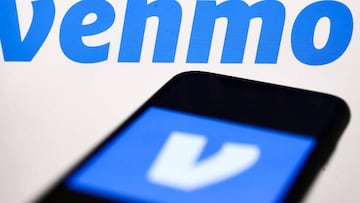What are the reporting requirements for the new $600 income rule for third-party platforms?
A new rule requiring those who make more than $600 a year from retail platforms or that receive payment through PayPal may see their taxes rise.


Do you rent out a room in your house through Airbnb and make more than $600 a year? Do you make jewelry or knit scarves that you sell on Etsy? Do you receive payments for business through PayPal and Venmo? Well, then, you may want to find out more about the IRS’ new income reporting requirements that will take effect next year.
Under changes made through the American Rescue Plan, third-party retailers like Poshmark, Etsy, and eBay, as well as mobile payment services like PayPal and Venmo, will be required to send users a 1099-K if they receive more than $600 in sales for goods and services. The threshold currently stands at a minimum of two-hundred payments totaling at least $20,000 to trigger the sending of a 1099-K by these companies.
The rule was supposed to go into effect this year, but companies reported delays in warning their customers and upgrading their capacity to issue 1099-Ks. These delays, plus a growing consensus in Washington that the $600 limit may be too low for the administrative burdens it creates, led the IRS to postpone its implementation until 31 December 2023. So no need to fret too much this tax season as the current rule still applies.
Rather than a change to the tax code, lowering the reporting requirements will give the IRS greater access to the financial records of taxpayers who work as independent contractors or “gig” workers. Under current US law, any income generated through a third-party platform over $400 must be reported to the IRS, the new rules will make it harder to avoid paying taxes on revenue generated through these sites.
To crack down on tax evasion, in 2021 Congress lowered the 1099-K reporting threshold to $600 with no minimum number of transactions. Then, without citing any legal authority, the IRS announced they will not enforce this for another year. https://t.co/FUZBfgjn7U
— Tax Policy Center (@TaxPolicyCenter) January 12, 2023
What sort of transactions will need to be reported?
There exists a slew of transactions from online marketplaces like eBay, Facebook, Etsy, Poshmark, Rover, and AirBnB that the IRS will soon have its hands on. However, not all may require that additional tax be paid.
Selling on Facebook Marketplace
Say, for example, you list a musical instrument like a drumset on Facebook Marketplace, and you are paid through the application $1,000. Early next year, Facebook will send you a 1099-K with the transaction recorded. You will use this form to report those earnings as additional income.
‘But hey, wait! I paid $3,000 for that drum set when I bought it in 2015,’ you might think.
Well, the IRS hopes you have the receipt so you can file an amendment to report the transaction as a loss. If you didn’t hold onto your proof of purchase, and your return is audited, the IRS says they “may accept oral testimony when records do not exist.” If you acquired the drumset for free, the $1,000 would be added to your income, but that does not necessarily mean you will need to pay tax on it.
Unlike those who use apps like Airbnb, Poshmark, or Etsy as their primary or even secondary source of income, those who sell a used item that they purchased are not considered independent contractors.
Etsy, Air BnB, eBay, Rover | Gigs and the Self Employed
Next year, if you are an Air BnB host and make more than $600 a year, the company will automatically send you a 1099-K that you must report on your tax return. The same goes for retailers on Etsy, dog walkers on Rover, drop shippers on Instagram, and users of nearly every other third-party retail platform.
Currently, even if the platform does not send a 1099-K, the income generated is still legally required to be reported to the IRS. The rule change just increases reporting to the IRS, making it more difficult to avoid paying taxes on this work.
Venmo and Paypal
At this point, it appears that a user of Venmo or Paypal who receive more than $600 for purchases tagged as “goods and services” will be sent a 1099-K in early 2024. If you transfer money between friends and family for gifts and reimbursements, you will not be subjected to scrutiny. However, you may be sent a 1099-K by mistake, and it will be important to keep financial records and receipts to ensure you can prove that these transactions do not count as income in the case your return is selected for auditing.
What if there is a mistake on my 1099-K?
Related stories
If you receive a 1099-K by mistake or there is an error on the document, the IRS advises the taxpayers “contact the filer, whose name and contact information appears in the upper left corner on the front of the form. You may also contact the payment settlement entity whose name and phone number are shown in the lower left side of the form.”
The fact that these companies were going to need to provide customer support on these issues contributed to the decision by IRS to delay the rule’s implementation. As the year progresses, the IRS will take a more active approach to educate the public as to what the new reporting requirements mean for filing next year.